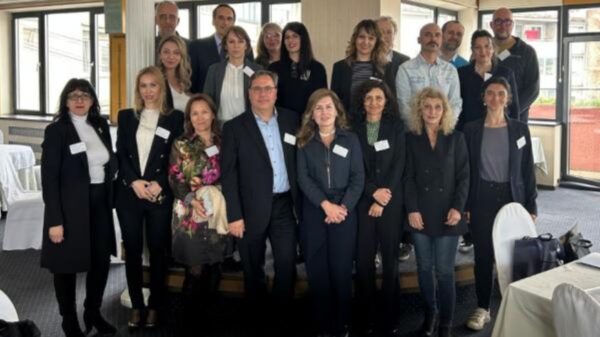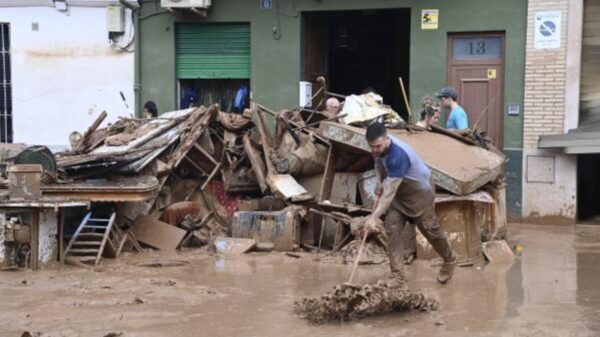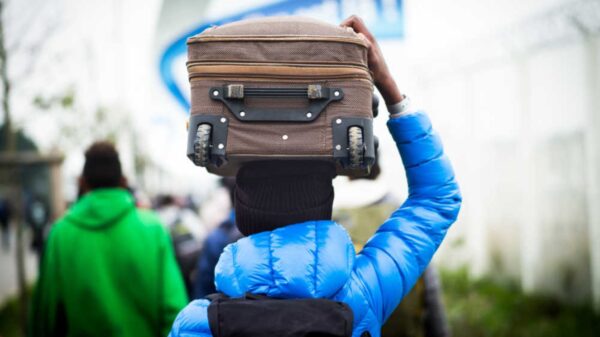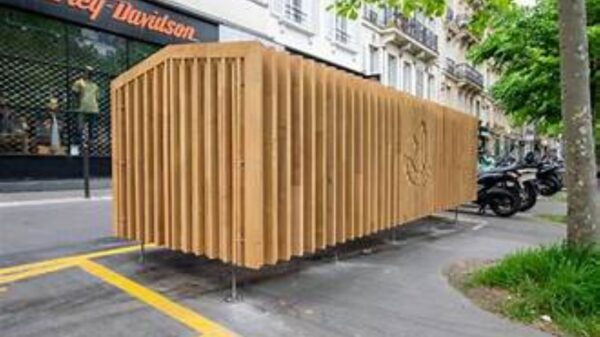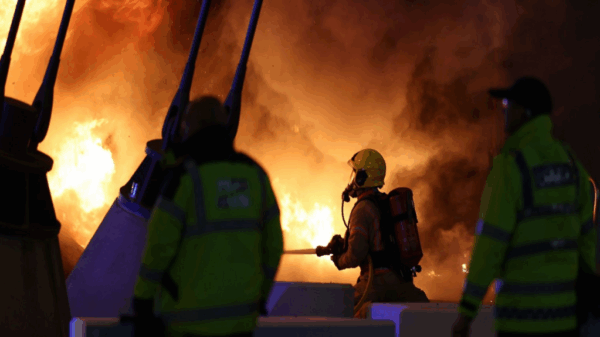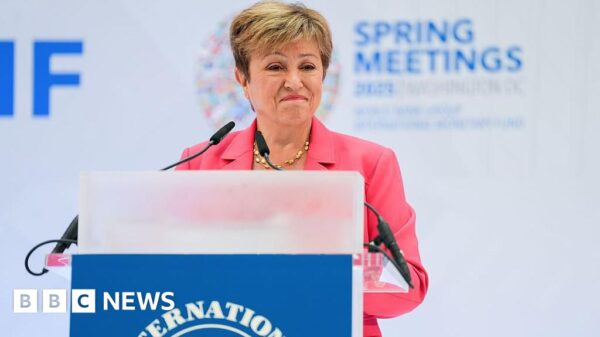The migratory pressure on Europe has exposed the need for a reform of the EU asylum system, as well as for greater sharing of responsibility between EU countries, Society.
In recent years, people have been fleeing to Europe in large numbers from conflict, terror and persecution in their own countries. In 2022, EU countries received 966,000 asylum applications – almost double the number of applications in 2021. Irregular crossings also peaked last year, reaching around the highest number since 2016 and up 64% from 2021. The EU is reforming the Common European Asylum System to ensure that all EU countries take shared responsibility for asylum management.
Read more about the EU response to the migrant challenge.
Introducing responsibility-sharing with the new asylum and migration management regulation
The procedure for seeking refugee status is determined by the Dublin regulation, the single most important element of the Common European Asylum System. It determinS which EU country Is responsible for processing asylum claims, the general rule being that it is the first country of entry.
Overhauling the Dublin regulation
The system according to the Dublin regulation, created in 2003, was not designed to distribute asylum applications between EU countries and when the number of asylum seekers entering the EU soared in 2015, countries such as Greece and Italy began to struggle to accommodate all applicants. Parliament has been calling for an overhaul of the Dublin system since 2009.
In September 2020, the Commission proposed a New Pact on Migration and Asylum, which sets out improved and faster procedures throughout the EU’s asylum and migration system.
The New Pact on Asylum and Migration
The new asylum and migration pact focuses heavily on an improved border management and asylum procedure for people requesting asylum at the border, as well as a new compulsory pre-entry screening to establish the applicant’s status swiftly on arrival. A core pillar is responsibility-sharing.
The proposed system encourages flexible contributions from EU countries, ranging from the relocation of asylum seekers from the country of first entry, to the returning of people who are considered to have no right to stay. The new system is based on voluntary cooperation and flexible forms of support, which could become requirements at times of pressure.
Read more about the New Pact on Migration and Asylum and MEPs’ reaction to it.
Read more about the Dublin regulation.
The revised Asylum and migration management regulation
Parliament agreed its negotiating position on the revision of the Regulation on Asylum and Migration Management in April 2023 and is now ready to start talks with EU countries with the aim of finishing by February 2024. The new rules are expected to come force by April 2024 at the latest.
The new rules would amend the criteria determining which EU country is responsible for examining an application for international protection. It also recognises that responsibility for irregular arrivals is for the EU as a whole, not the country of arrival.
Under the new rules members states would help other EU countries facing migratory pressure by committing to taking and processing some of the migrants.
The proposed new rules also encourage cooperation with non-EU countries to address the causes of irregular migration, forced displacement, and facilitate the return of both legal and illegal migrants.
.The Commission would prepare an annual report on asylum, reception and the overall migratory situation, which will be used to decide the EU’s response to migration.
Check out the infographic on asylum seekers in Europe by country.
Granting safe access to the EU: the creation of an EU Resettlement Framework
Resettlement is the transfer, on request from the UNHCR, of a non-EU national in need of international protection from a non-EU country to an EU member state, where he or she is permitted to reside as a refugee. It is one of the preferred options for granting safe and lawful access to the European Union for refugees.
In order to ensure a durable solution to the issue of migration, Parliament has underlined the need for a permanent and mandatory EU resettlement programme. As part of the New Pact on Migration and Asylum, the Commission called on EU countries to scale up resettlement programmes, placing particular emphasis on humanitarian admission and other complementary pathways for people in need of protection.
Read more: EU Resettlement Framework
Keeping track: upgrade of the Eurodac database
When someone applies for asylum, no matter where they are in the EU, their fingerprints are transmitted to the Eurodac central database.
In May 2016, the European Commission proposed that additional data such as name, nationality, place and date of birth, travel document information and facial images be included to support the practical implementation of the reformed Dublin system. In addition, in September 2020 the Commission proposed to improve the Eurodac database by focusing on individual applicants rather than applications in order to prevent unauthorised movements between member states, facilitate relocation, and ensure better monitoring of returnees.
Increasing the information in the system would allow immigration authorities to more easily identify an illegal migrant or asylum applicant without having to request the information from another member state, as is currently the case.
Read more: Eurodac recast
Ensuring greater uniformity
Greater convergence of the asylum system is key to responsibility sharing. It will help relieve the pressure on countries offering better conditions and help prevent “asylum-shopping”. A number of legislative proposals to bring about greater uniformity are being worked on.
Grounds for granting asylum
In June 2017, Parliament’s civil liberties committee adopted its position on a new qualification regulation on the recognition of people in need of protection. The aim of the regulation is to clarify the grounds for granting asylum and to ensure that asylum seekers face equal treatment regardless of the member state in which they file their request. While Parliament and the Council reached an informal provisional agreement on the regulation in June 2018, the agreement has yet to be formally endorsed by the Council.
Reception conditions
The recast of the reception conditions directive aims to ensure that asylum seekers benefit from harmonised material reception standards (housing, access to the labour market etc.). In June 2018, Parliament and the Council reached a partial provisional agreement on the updated regulation. Under the deal, asylum-seekers would be allowed to work six months after requesting asylum, instead of the current nine months. They would also get access to language courses from day one. As with the qualification regulation, there has yet to be a final endorsement of the agreement in the Council.
EU agency for asylum
On 11 November, 2021, the Parliament backed the transformation of the European Asylum Support Office (EASO) into the EU Agency for Asylum, following an agreement with the Council. The revamped agency will help make asylum procedures in EU countries more uniform and faster. Its 500 experts will provide better support to national asylum systems facing a high caseload, making the overall EU migration management system more efficient and sustainable. In addition, the new agency will be in charge of monitoring whether fundamental rights are being respected in the context of international protection procedures and reception conditions in member states.
EU funds for asylum
In a resolution adopted in July 2021, Parliament approved the renewed Asylum, Migration and Integration Fund (AMIF) budget for 2021-2027, which will increase to €9.88 billion. The new fund should contribute to strengthening the common asylum policy, develop legal migration, in line with member state needs, support the integration of third-country nationals, and contribute to the fight against irregular migration. The funds should also serve to push member states to share the responsibility of hosting refugees and asylum-seekers more fairly.
Members also backed the creation of a new Integrated Border Management Fund (IBMF) and agreed to allocate €6.24 billion to it. The IBMF should help to enhance EU countries’ capacities in border management while ensuring fundamental rights are respected. It will also contribute to a common, harmonised visa policy and introduce protective measures for vulnerable people arriving in Europe, notably unaccompanied children.
Read more on the EU’s work on migration
- EU border controls and managing migration
- Integration of refugees in Europe
- Repatriating migrants: facts and figures
- Labour migration: better legal avenues to work in the EU
European Parliamentary Research Service

